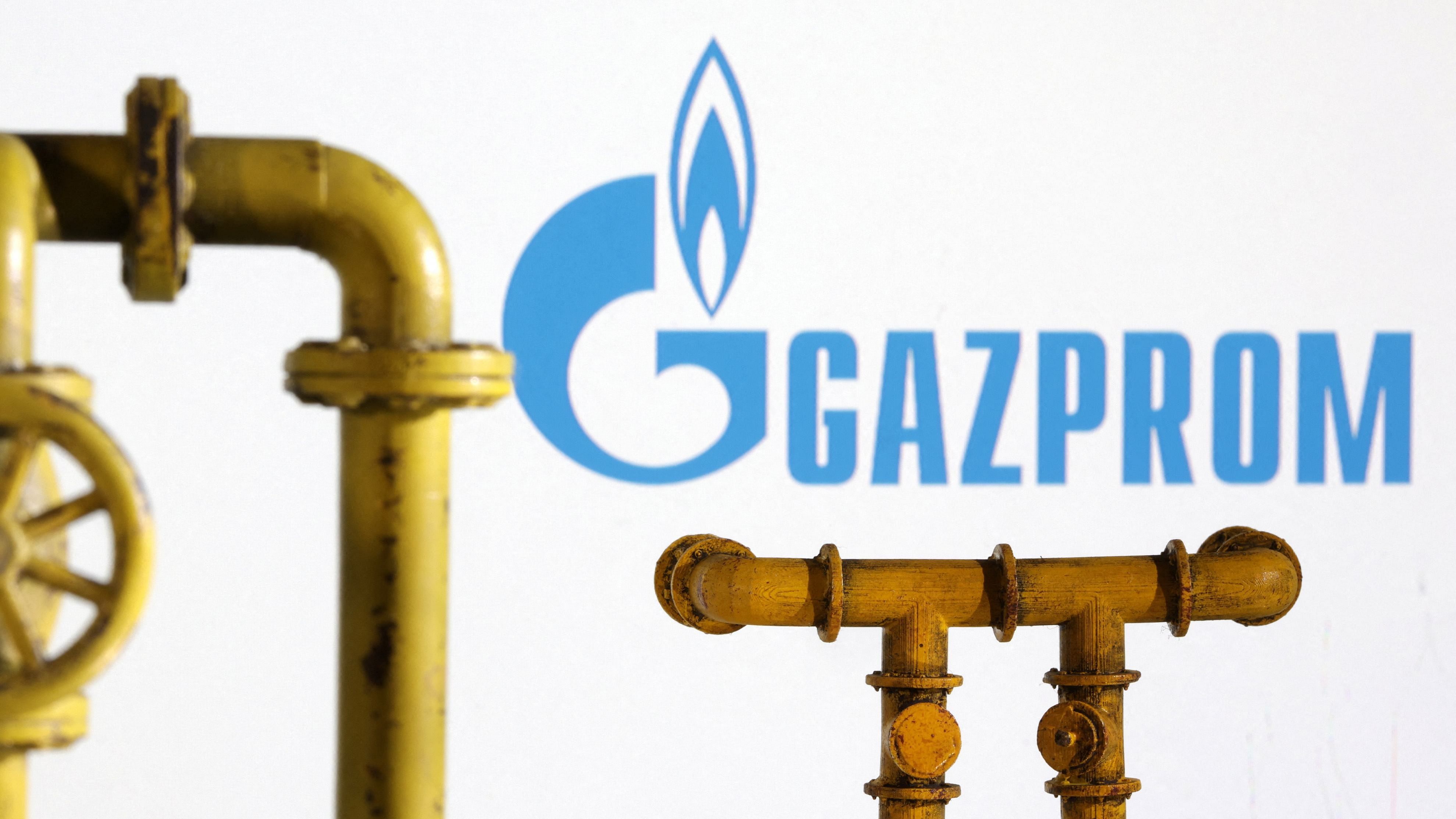
Gazprom logo.
Credit: Reuters File Photo
New Delhi: A former unit of Russian energy giant Gazprom has rejected state-owned GAIL (India) Ltd's demand for compensation for non-delivery of LNG supplies in the aftermath of Russia's invasion of Ukraine.
In a stock exchange filing, GAIL said SEFE Marketing Trading Singapore Pte Ltd has stated that it does not owe anything other than the defaulted cargoes.
GAIL in December last year filed an arbitration claim before the London Court of International Arbitration seeking $1.8 billion for 'non-supply of LNG cargoes under a long-term contract.
This included compensation for non-supply besides making up for the defaulted volumes.
GAIL in 2012 signed a 20-year deal to buy as much as 2.85 million tonnes per annum of liquefied natural gas (LNG) with Russian energy giant Gazprom.
The deal was signed with Gazprom Marketing and Singapore (GMTS), which at the time was a unit of Gazprom Germania, now called Sefe. The Russian parent gave up ownership of Sefe after Western sanctions were imposed on Moscow over its invasion of Ukraine in 2022.
Sefe had stopped supplying LNG to the Indian company in June 2022 to meet its own demand. The German government acquired Sefe after the start of the Ukraine war in February 2022 and prohibited it from taking volumes from Russia.
Supplies were resumed in March last year.
GAIL in December stated that it has sued 'SEFE Marketing & Trading Singapore Pte Ltd (erstwhile Gazprom Marketing and Trading Singapore Pte Ltd)' and has sought 'up to $1.817 billion and alternative relief including non-monetary reliefs.
Originally, GAIL had signed up with the German subsidiary of Gazprom, and a step-down company based in Singapore for sourcing of gas. After the invasion, the German government took over the company and the supplies were hindered as the German government debarred the company from picking up any cargo from Russia.
GAIL believes the contract was a portfolio contract and supplies cannot be stopped in any way. If there were problems in sourcing from Russia, the supplier should have arranged for the cargo from other destinations.
Under the deal signed in 2012, supplies started in 2018 and the full volume was to reach in 2023.